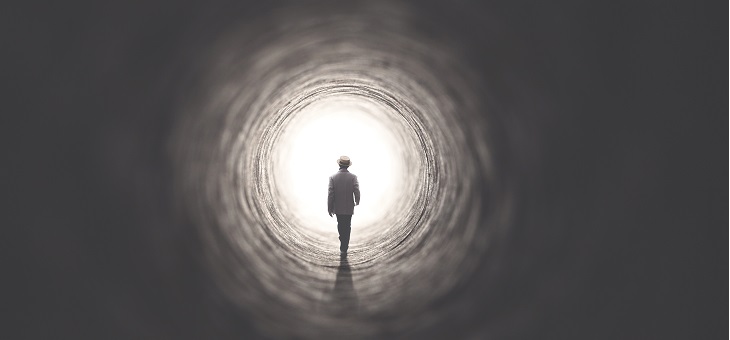Do you remember what you dreamt last night? Because you did dream.
It is believed that we all dream between three and six times a night, according to medicalnewstoday.com. Each dream lasts between five and 20 minutes and 95 per cent of dreams are forgotten by the time we get out of bed.
Recurring dreams obviously stick, as do frightening dreams. A quick poll of the office turned up the following recurring dreams: Leon dreams of getting to the top of an escalator with no way down, Liv dreams of the apocalypse, Drew of toppling buildings that return to the vertical and topple again, and Janelle returns to boarding school – 40 years after leaving.
But what about death dreams?
Death dreams are obviously scary, hard to ignore and usually wake us with a start, but experts say they may not be our worst nightmare in terms of what they mean.
Dream analysts say that dreaming about death is likely a good thing – despite the sick feeling that comes from seeing yourself or a loved one die – and should not be taken literally. Some even argue that death dreams can help us work through traumatic events.
Former scientist Jane Teresa Anderson has been a dream analyst for 16 years and says death dreams are a normal reaction to the stresses of everyday life.
She says such dreams – once analysed – can help us see our best way forward. “Don’t worry that your dream has predicted a death – that’s not what these dreams are about. These dreams hold the key to life (not death) – when you understand them.”
She told news.com.au that all dreams were a result of what the conscious mind had processed within the past few days. And death dreams were common.
“We all have death dreams. If you haven’t had one before now, it is really quite surprising,” Ms Anderson said.
She said common death dream scenarios included opening a door and seeing your dead body, and falling, hitting the bottom, then stepping away and seeing your body.
She said dreaming about your own death was usually symbolic of a life transformation and indicated positive change; it was highly unlikely to be predictive of an upcoming death.
“Death dreams have a theme of what is ending, what’s changing in your life … This ending is the start of a new beginning,” she said. “It’s really important to say that most death dreams are probably positive. In order to move on to new things, we have to let go of old things.”
“What it is doing is giving you the insight to your mindset and how your unconscious mind is working. You can look at them and see how you feel about a subject and make a great decision.”
However, Ms Anderson warned that a death dream could be a health warning, perhaps indicating an unhealthy lifestyle or bad habits, and that if anyone was concerned, they should see their health professional.
Another common death dream was seeing a partner, parent or close friend die. This commonly indicated a significant change in your relationship with that person.
But she advises against telling that person about the dream until you understand it.
“Share it with friends and people who are skilled in understanding or share it with a dream therapist. I wouldn’t go straight to the person as it does freak them out. You might be able to say later, ‘I had a dream you died and I’ve worked this out’, and teach them the things you’ve learnt about it,” she said.
If you dream of the Grim Reaper or a deathlike figure chasing you, it can mean that you sense that whatever has been haunting you over time may need to or will come to an end.
The final word goes to psychotherapist Jeffrey Sumber, who says death-related dreaming is an opportunity for introspection and growth. A person can ask herself if she is anxious about something or angry at herself or someone else, he says. “I can potentially learn that part of me is not at peace with the notion of my own death or the ending of something big in my life,” says Mr Sumber. “I have the opportunity to look within, take stock of myself and make adjustments as needed.”
Have you had death dreams? Have they matched periods of your life when momentous changes were occurring or have they indicated that changes should occur?
Related articles:
Can food give you bad dreams
Facts about dreams
Do you remember your dreams?

